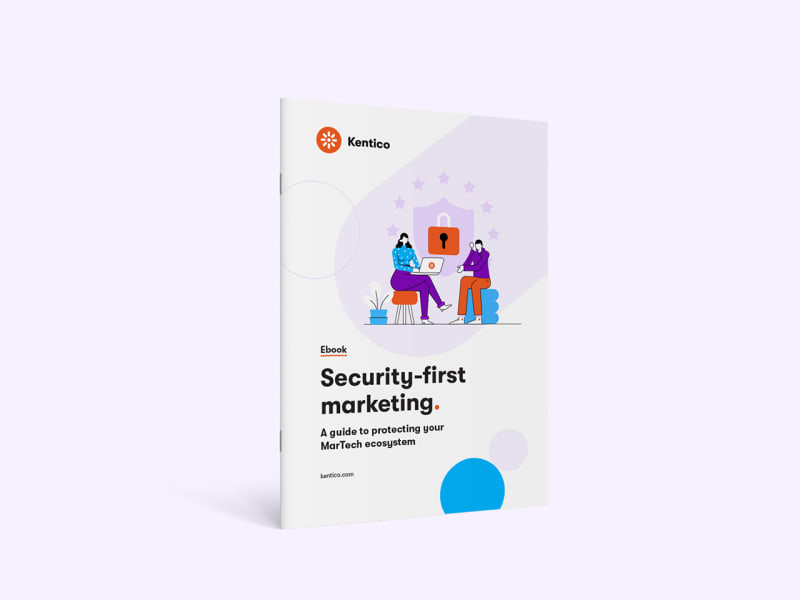According to the annual IBM report, the average cost of a data breach in 2024 was 4.88 million USD. Beyond cost, security issues, including data breaches have such broad consequences that it can ruin your entire business.
We're explaining how security issues can harm businesses and exploring what to do to prevent potential issues before they arise. Hackers come with new tricks every day, but luckily, so do our software developers.
It's more important than ever to prioritize digital security
Without security features that comply with local and international regulations, you can put your company out of business and into serious debt. Running a digital business isn’t possible without collecting customers’ data, and protecting data is required by regulations like GDPR, CCPA, and DORA.
With the rise of artificial intelligence and new concerns about AI-assisted fraud, deepfake scams, and automated phishing attacks; ensuring that your digital security is fortified with the latest updates to protect your customer's data is critical.
Data breaches incur hefty fines and can take years to recover from. The cost is proportionately higher for smaller companies, and they are more likely to face closing down after a security incident. But that doesn’t mean that enterprises aren’t seriously affected—diminished customer trust is another price they have to pay.
The cost of security incidents can burden companies for years
The financial and reputational toll of a data breach extends far beyond the initial incident. Companies face escalating costs at multiple levels—from remediation and legal fines to long-term damage to their brand and customer trust.
Here’s what the recovery process looks like:
1. Repairing the damage
Customer data is one of a company’s most valuable assets and restoring it after a cyberattack or security breach requires significant time and resources. A study conducted in 2024 found that it can take on average over seven months to recover from a security breach. The effort put into recovery is time that could have been spent on innovation and growth.
2. Paying fines for regulatory violations
Data security laws are only becoming stricter, with severe penalties for non-compliance. For example:
- The GDPR enforces fines of up to €20 million or 4% of global annual turnover, whichever is higher.
- The CCPA imposes penalties starting at $2,500 per violation, with potential class-action lawsuits increasing the financial risk.
- As of 2025, the Digital Operational Resilience Act (DORA) requires financial institutions in the EU to maintain strict cybersecurity measures, with penalties reaching €1 million for non-compliance.
The easiest way to avoid fines? Use digital tools you can trust. Make sure that your content management system and digital marketing tools are built with security in mind.
3. Rebuilding your brand reputation
Security breaches leave a lasting mark, often surfacing in online searches and industry discussions for years. Some companies have had to rebrand entirely to escape the stigma of a cyber incident. Following a breach, acquiring new customers becomes significantly more challenging and costly than retaining existing ones.
In B2B networks, trust is paramount. Companies demand secure, compliant partners, and a data breach can result in blacklisting, lost contracts, and damage to long-standing business relationships.
Proactive cybersecurity isn’t just an IT priority; it’s a business imperative. Investing in comprehensive security measures today can save your company and help you avoid the lengthy process of repair.
Obsolete websites are at high risk
Your website is an easier target if it uses obsolete, unsupported software. Unsupported software that can not adhere to new security measures are left unprotected from the latest cybersecurity concerns—hackers can easily find information on gaining global administrator access to a website or app built on obsolete or old versions of software. If your website runs on an old platform, the question isn’t if but when it’s going to be attacked.
Prevent a data breach and help your business thrive by keeping your CMS secure
Rather than saving money to cover a potential data breach, it’s wise to invest in precautions. We recommend buying the latest software from a vendor with a good reputation and to work with a digital agency that cares for its clients even after the implementation is finished.
We’re proud ISO 27001 certificate holders. This means that all our employees and contractors must comply with the given security measures and protect valuable information in a standardized way.
Xperience by Kentico swapped launching new versions for releasing Refreshes each month. Refresh updates are much easier than upgrading to a new version of the platform. Each Refresh is updated in detail, and often includes security updates or fixes—ensuring your platform is never out of date.
Prioritizing security has several advantages. A secure website prevents business disruption and helps you retain your existing customers and build trust with prospects. Your reputation remains spotless, and your business can grow, undisturbed, alongside other reliable partners who are happy to cooperate with you. On top of that, you prevent serious financial loss connected to data breach recovery.
Discover how marketing teams can prioritize compliance without compromising productivity by downloading our free ebook, Security-first marketing.
Subscribe to the Kentico newsletter
You'll receive our newsletter once a month with all the updates you need to know to keep you in the loop with the Kentico community. Just the hits—guaranteed.


